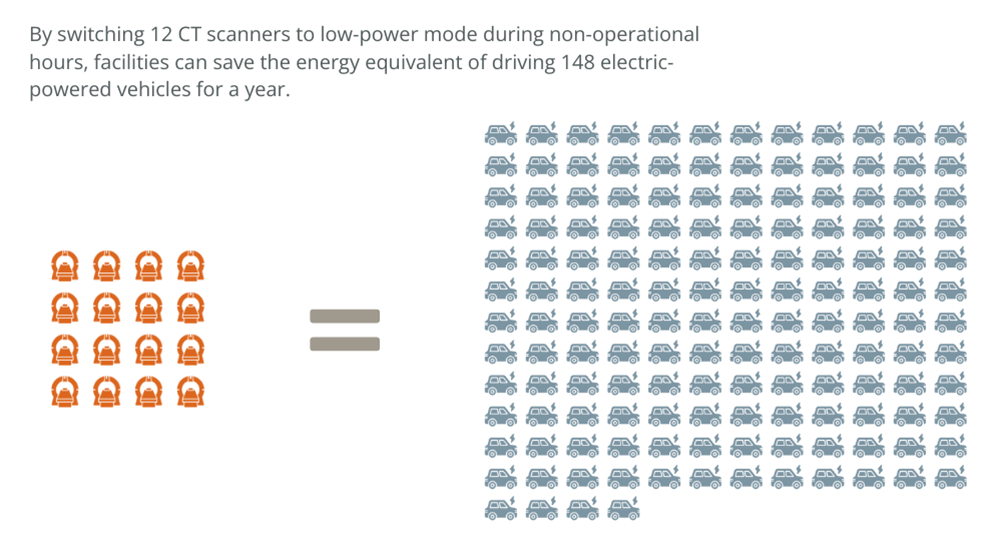CT Green project looks to lower emissions and save costs in medical imaging
Posted on December 9, 2024
Medical imaging is going green in BC.
Computed tomography (CT) scanners and magnetic resonance imaging (MRI) machines throughout BC consume hundreds of thousands of kilowatt-hours per year, but the Shared Care-funded CT Green project team believes they have found a way to save time, money and energy in medical imaging.
The group of radiologists, technologists, and building operations staff believe that by placing these medical imaging devices in a lower power state during non-operational hours, they can reduce the environmental impact of radiology in BC, save tens of thousands of dollars in electricity costs, and prolong the lifespan of CT scanners—resulting in long-term savings to the health care system.
The team began investigating the CT Green project in 2021, launching a pilot project on one CT scanner at BC Cancer. After publicizing the results, they engaged a larger team to model the energy and cost savings of powering down CT scanners, where clinically appropriate, across the Lower Mainland.
After engaging with the Specialist Services Committee’s Perioperative Clinical Action Network (PCAN), the team expanded the model to the rest of BC. They found that powering down a subset of scanners, which have an available low power mode and are in a low-to-medium use clinical setting, can save a significant amount of electricity.
In the Lower Mainland, powering down 12 CT scanners saves an estimated $21,600 per year, and over 250,000 kWh of electricity—enough to power 148 electric cars for a year. The US EPA Greenhouse Gas equivalencies calculator equates the energy savings to a reduction of 168 metric tons of CO2e, which amounts to driving 688,000 kilometres in a gas-powered car.

“Human health is inextricably linked to the well-being of Earth’s systems including clean air, clean water and healthy soil. As health care teams, we are well positioned to positively contribute to climate solutions through reducing health-care-related emissions and waste,” explains Dr Maura Brown, clinical associate professor at UBC Radiology and co-chair of BC Cancer’s Planetary Health Unit. “We hope our project will inspire others by demonstrating that even small changes, when scaled across large regions, can significantly reduce pollution and waste, benefitting both local and global health.”
The project team is compiling feedback on the successes and challenges from their work in the Lower Mainland CT sites. They will then incorporate their learnings into their approach and reach out to CT sites in the remaining health authorities in BC. As many MRI machines also have lower power modes available, the team hopes to model those savings and begin engaging MRI scan sites throughout BC in 2025.
This project is funded by the Shared Care Committee through the Perioperative Clinical Action Network's Innovation Fund.

